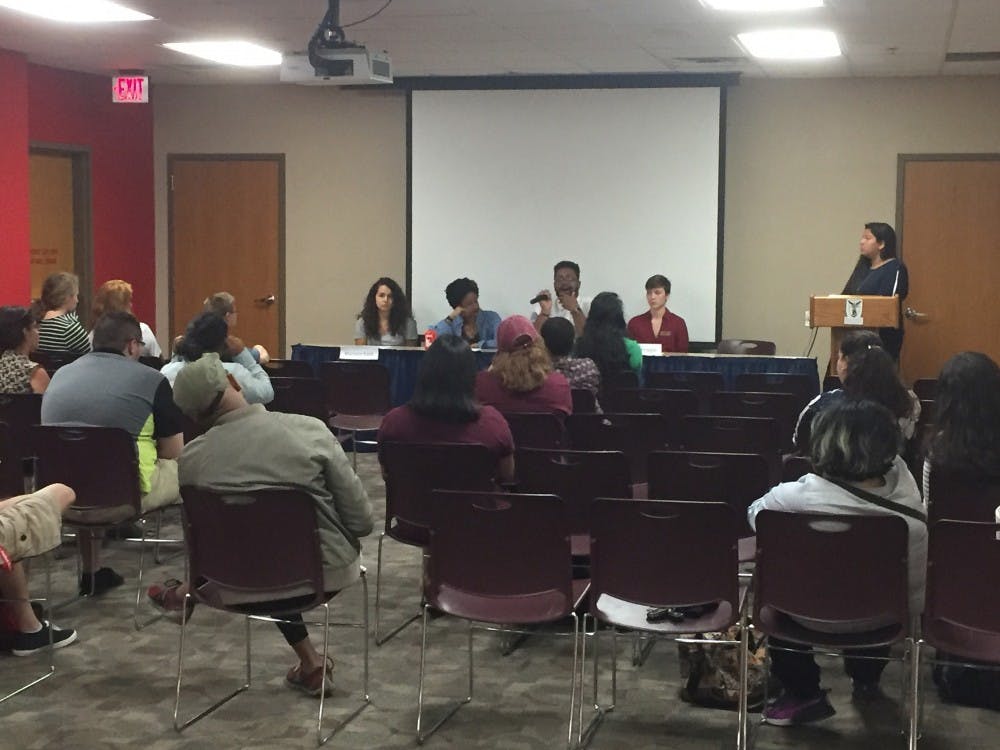The Latino Student Union hosted a interactive panel discussion on intersectionality on Sept. 20 at the L.A. Pittenger Student Center.
LSU’s conversation broke down the barriers of the word "intersectionality," which is typically associated with feminism and how it affects the Latino community. The event included a short presentation, speakers and an interactive game. Discussions were focused on race, ethnicity, gender and identification.
One of the interactive group activities asked participants to identify themselves. Questions presented included: “Which part of my identity am I most reminded of daily?” and “Which part of my identity am I reminded of least?”
The goal was to explain and shed light on the issues minorities face on a daily basis.
During the activity, titles like disability, religious affiliation and socially oriented were put on the wall for all participants to see.
After the activity, audience members said it was "surprising" and "situational." Many people felt their social identity was connected to their background and culture while others felt there were some things they don't think about on a daily basis.
After the interactive activity, audience members were able to ask the panel questions. One of the questions asked panelists to speak about their identity.
Panelist Malikah McMillan, a sophomore creative writing major, was not reluctant to share her story.
"My identity is in isolating factors but it is also powerful in its existence," McMillan said.
Panelist Mariann Fant, a junior public communications major, said their identity is just "open windows into the world.” The overall tone of the discussion suggested that not one person has just one identity.
"We all are complex beings. We don't have just one side to us," said Lilia Arroyo, a junior elementary education major.





